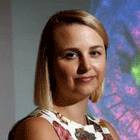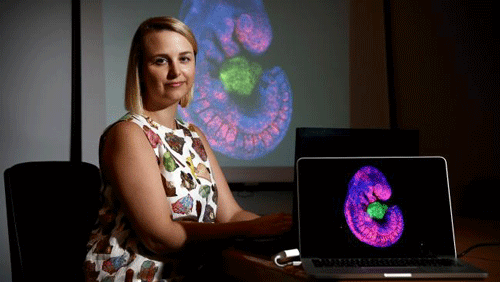 Dr Sophie Wiszniak has won the 2016 Mary Overton Early Career Fellowship to pursue her research in unravelling the mysterious cause of congenital heart defects, a common problem affecting one in 100 babies.
Dr Sophie Wiszniak has won the 2016 Mary Overton Early Career Fellowship to pursue her research in unravelling the mysterious cause of congenital heart defects, a common problem affecting one in 100 babies.
Dr Wiszniak believes she has found the culprit: genetic defects in neural crest cells crucial to the developing heart, in mice and humans. “We have some candidate genes that are known from our studies to cause heart defects,” she said. “That gives us a competitive advantage, because we have these unique mouse models and genes that we know no one else is looking at worldwide.”
Previous research had failed to recognise the full extent to which neural crest cells contribute to heart defects, even though their role in the development of normal heart tissue had been known for decades.
Like stem cells, neural crest cells in the developing embryo can go on to form different cell types that contribute to skull bones, nerves, or heart valves and vessels. These cells are the focus of work in the Neurovascular Development Laboratory at the Centre for Cancer Biology. Dr Wiszniak said "finding the genes was only the beginning. Understanding what goes on in the body to cause the problem is the more complicated story that can take years to solve”.
“I think it’s a really exciting area of research, because it affects so many people,” she said. “By working on something that’s quite prevalent, you feel like you could be making a difference in the future. One of the next steps will be to start identifying affected families to see if they also have mutations in these genes and problems with the same developmental pathways.”
Dr Wiszniak has won the 2016 Mary Overton Early Career Fellowship to pursue her research for the next three years. The fellowship scheme aims to “encourage a person of outstanding ability to make biomedical research a career in one of the laboratories on the campus of the RAH and SA Pathology including Centre for Cancer Biology, or Medical School of the University of Adelaide”.




